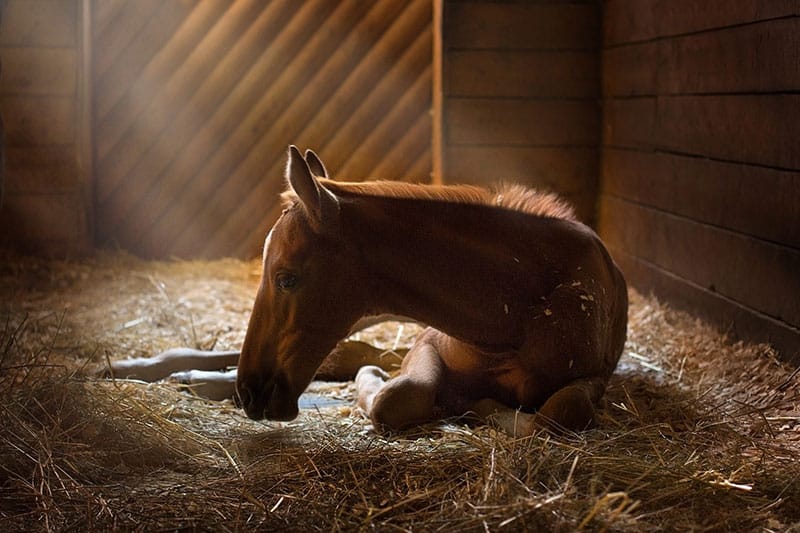Will My Foal That Had Pneumonia Suffer Lasting Effects?

Q: My horse had pneumonia when he was a foal and he recovered well, but is there anything I should be concerned about as he gets older? Does him having pneumonia when he was young put him at greater risk for other respiratory conditions?
A: Pneumonia is very common in foals and, depending on various factors, can affect up to 10% of all foals. Although overall mortality rates are low compared to other diseases (because it is so common), it is considered one of the leading causes of foal mortality. Veterinarians typically suspect pneumonia based on physical examination findings of fever and increased respiratory rate, heart rate, or respiratory effort. They confirm it using diagnostic modalities such as ultrasound and X ray. Definitive diagnostics include a transtracheal wash to confirm the presence of white blood cells and bacteria within the pulmonary (lung) secretions. Further characterization of infection is performed by a culture and sensitivity report to identify appropriate antibiotic options.
Although foal pneumonia can be quite severe, with aggressive management foals can recover and go on to lead normal lives. Typical treatment includes a combination of antimicrobials, both systemic and/or inhaled, anti-inflammatory medications, antioxidants, and bronchodilators, as well as supplemental oxygen and intravenous fluids as indicated.
Although few studies have assessed recovery from pneumonia, current information (from Thoroughbreds and Standardbreds) suggests affected foals might have a decreased chance of performing athletically. Interestingly, those that do go on to perform as athletes did not seem to have any disadvantages.
Horses that sustain damage to their lung tissue from severe pneumonia might be at increased risk of lower airway bleeding during exercise (exercise induced pulmonary hemorrhage), as well as recurrent infections due to decreased clearance of mucus. These risks remain a concern for only those horses that did not have a complete recovery and sustained irreversible damage to the lung tissue. For most horses complete recovery results in a long and happy life, with little, if any, long-term repercussions.

Related Articles
Stay on top of the most recent Horse Health news with


















